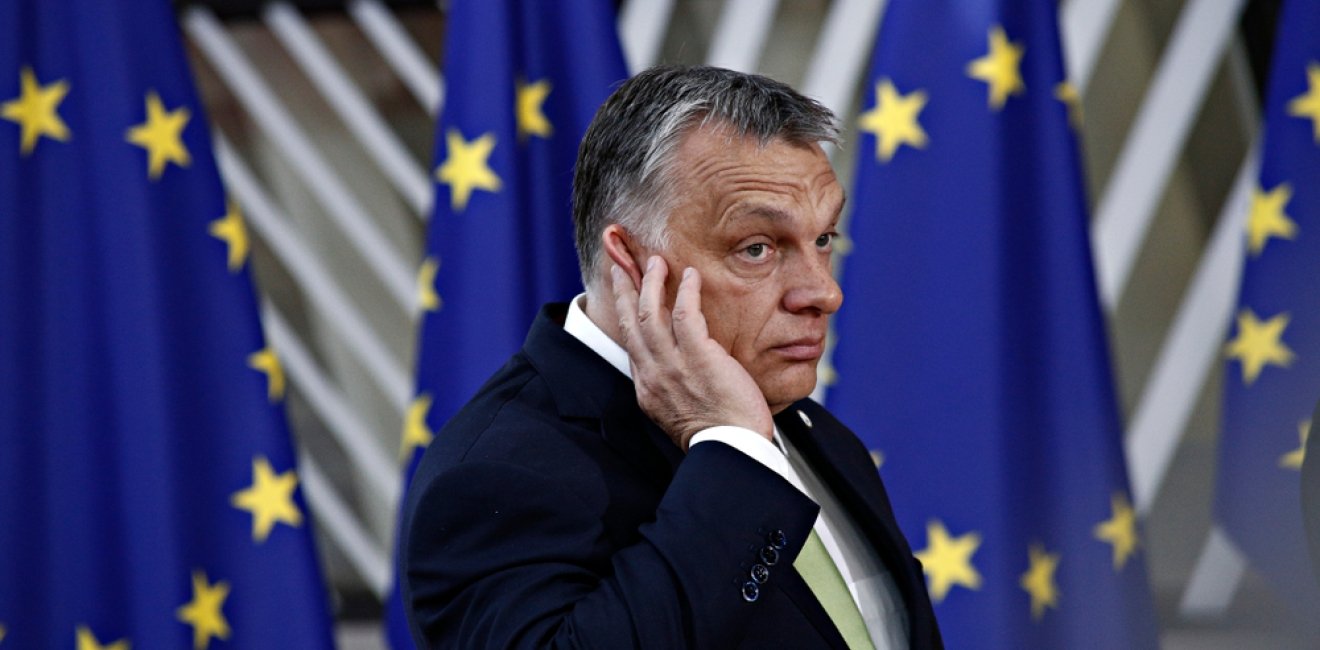In the rubble of World War II, European leaders met to form a political and economic union with the ultimate goal of preventing future conflict on the historically bloody continent. Committed to forming “an ever-closer union among the peoples of Europe,” the EU matured into an economic and geopolitical force predicated upon the principles of unity and liberal democracy. However, an internal threat emerged in the past two decades that challenges the unity and values of the EU. The success of right-wing populist leaders has led to the rise of illiberal democracy, subverting the rule of law and democratic institutions. As populist movements continue to find success, the unity of the EU will continue to erode. To address this challenge, the EU introduced a legal mechanism to withhold funding from member states that subvert the rule of law. This threat has shown preliminary success in pressuring Hungary and Poland to adopt rule of law reforms. Nevertheless, the EU should lower its expectations about reversing democratic backsliding with this mechanism. The scope of the current regulation is limited and leaves many loopholes for Budapest and Warsaw to access funding without meaningful reform. The EU should adopt a broader conditionality mechanism that establishes the legal force to withhold funding for any infringement upon the rule of law and democratic institutions as established in EU treaties.
In December 2020, the European Commission adopted the Rule of Law Conditionality Regulation, giving the EU the power to withhold funding from member states if they are found to have disregarded the rule of law. After Poland and Hungary challenged the regulation, the Court of Justice of the European Union (CJEU) ruled that the EU could withhold funding so long as the rule of law violations threaten “the sound financial management of the Union budget.” This ruling paved the way for Brussels to begin to withhold funding from Budapest and Warsaw.
On September 18, the Commission recommended that the EU withhold around €7.5 billion of funding from Hungary should they not adopt seventeen anti-corruption reforms. The proposed measures include the establishment of an Integrity Authority to monitor corrupt uses of EU funding by the Hungarian state. Furthermore, the EU could withhold an additional €5.8 billion from the Covid-19 recovery fund until Budapest adopts the reforms. This would be catastrophic for Hungary; it would lose funding worth up to 8.5 percent of its GDP. Budapest is begrudgingly adopting the EU’s recommended anti-corruption reforms, including harsher penalties for mismanaging public property. Now, if Budapest maintains its resistance to EU rule of law principles, it will face a catastrophic blow to its economy.
The EU is taking similar measures to protect the rule of law in Poland. Brussels is threatening to withhold €75 billion of funding until Warsaw commits to reinstating an independent judiciary. Since gaining power, the ruling Prawo i Sprawiedliwość (PiS) party has compromised the independence of the judiciary by crippling its ability to check the power of the ruling party. This included packing domestic courts with PiS-affiliated judges and a 2019 “muzzle law” that gave a disciplinary chamber the power to remove judges who oppose the PiS platform. EU efforts to condition funding upon judicial reforms have shown preliminary success; Warsaw forged an agreement with Brussels to meet judicial independence milestones to access €35.4 billion from its Covid-19 recovery fund. Poland has since agreed to dismantle its controversial disciplinary chamber. However, as Warsaw has not adopted further measures of judicial reform, it still does not have access to the funding. As the Commission announced plans to consider withholding additional funding until Warsaw adopts more reforms, Polish leaders reacted with outrage, threatening to veto all EU legislation in retaliation. However, Polish Finance Minister Magdalena Rzeczkowsk insists the reforms will be sufficient for the EU and the funding will arrive by the end of 2022. Although the Polish government may try to accommodate the EU, it is unclear whether Brussels will deem it sufficient to receive the funding.
The EU has successfully pressured Hungary and Poland into adopting some rule of law reforms. This is a significant development, for until now the EU has been unable to influence the politics of the two countries. However, Brussels should not be misled; the legal mechanism alone will not be enough to reign in illiberalism in Budapest and Warsaw. Crucially, the CJEU’s ruling stipulates that the Commission only has the authority to withhold funding from a member state when there is significant risk of mismanagement of the EU’s budget. In Hungary, the mechanism has been successful in pressuring the government to adopt anti-corruption measures. However, the Commission’s recommendations impart no pressure to adopt reforms to safeguard democratic institutions and judicial independence, as they fall outside of the scope of the regulation. This will incite minimal change to Budapest’s democratic backsliding. Moreover, it is unclear whether the mechanism will have any effect in Poland, where the government has not mismanaged EU funds. The Commission may be unable to tie judicial independence to budget management in its argument, in which case the mechanism may not have the force to withhold funding from Warsaw. Furthermore, lawmakers in Warsaw may be unable to adopt EU reforms if they are in conflict with the Polish constitution; the Polish Constitutional Court ruled that EU law must be ignored if it conflicts with Polish law. The Rule of Law Conditionality Regulation is limited in scope, and therefore will be unable to impede democratic backsliding in Budapest and Warsaw.
The EU is a collection of countries united by a shared commitment to the principles of rule of law and democracy. Adherence to these principles is not optional; it is a core component of EU membership. Brussels must defend the unity and values of the EU. Withholding funding is a promising strategy to pressure Budapest and Warsaw to adopt rule of law reforms. However, the current legal framework is insufficient to stop the tide of democratic backsliding. Instead, Brussels should adopt a broader, more aggressive conditionality mechanism that gives the EU the right to withhold funding for any violation of its fundamental principles as established in its treaties. This would allow Brussels to leverage its funding to ensure uniform commitment to rule of law and democracy across all 27 member states. In the interest of self-preservation, the EU must take an expansionary legal approach to defend its values.
Author


Global Europe Program
The Global Europe Program is focused on Europe’s capabilities, and how it engages on critical global issues. We investigate European approaches to critical global issues. We examine Europe’s relations with Russia and Eurasia, China and the Indo-Pacific, the Middle East and Africa. Our initiatives include “Ukraine in Europe”—an examination of what it will take to make Ukraine’s European future a reality. But we also examine the role of NATO, the European Union and the OSCE, Europe’s energy security, transatlantic trade disputes, and challenges to democracy. The Global Europe Program’s staff, scholars-in-residence, and Global Fellows participate in seminars, policy study groups, and international conferences to provide analytical recommendations to policy makers and the media. Read more

Explore More
Browse Insights & Analysis
Greenland’s New Governing Coalition Signals Consensus

Myanmar’s Junta and the 2026 Elections: A Fig Leaf for Legitimacy?




